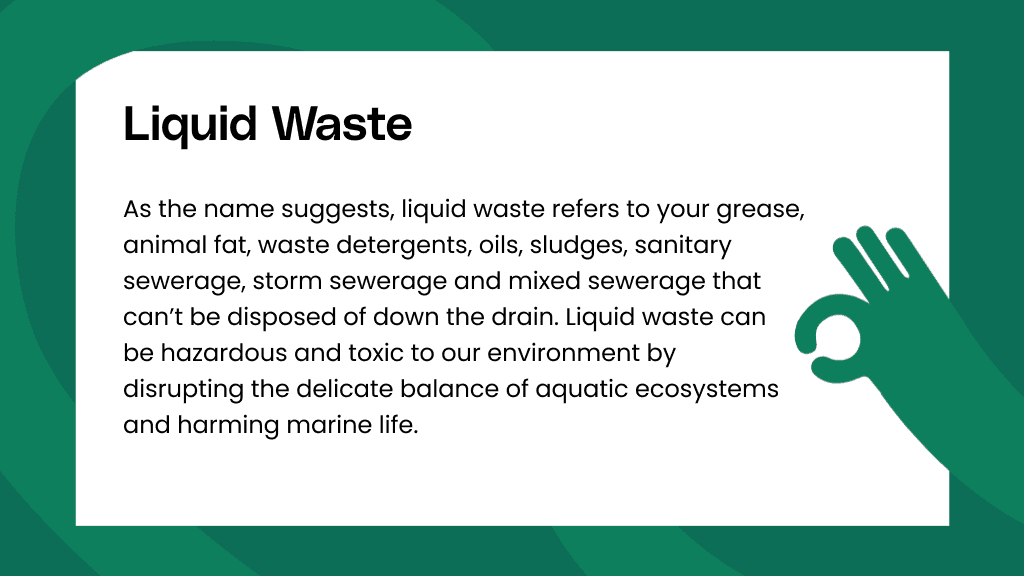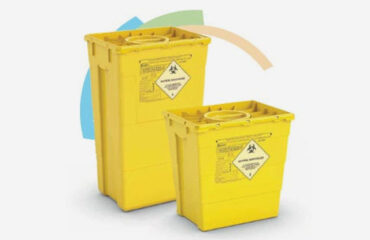Rumored Buzz on Reclaim Waste
Rumored Buzz on Reclaim Waste
Blog Article
The Best Strategy To Use For Reclaim Waste
Table of ContentsWhat Does Reclaim Waste Do?Reclaim Waste Things To Know Before You Get ThisSome Known Questions About Reclaim Waste.See This Report about Reclaim WasteThe Only Guide to Reclaim Waste
Domestic sewage waste refers to the waste and items from a household septic storage tank. The appropriate monitoring and disposal of domestic sewer waste require liquid waste to be moved to a sewage treatment plant where the correct methods and tools are applied to detoxify and dispose of waste.
Industrial waste frequently includes prospective dangers, such as combustible materials or a combination of fluid and strong waste items, and needs an extra advanced and comprehensive disposal process. The disposal of business waste usually includes the filtration of waste before transport to make certain safe and correct disposal. Hazardous waste is created from by-products and runoff of commercial processes and production.
This sort of waste can not make use of the exact same sewer monitoring transport or processes as septic or industrial liquids. The commercial waste management procedure calls for the inspection and screening of fluid waste before it undergoes the disposal process (liquid waste removal). Drainage waste is the liquid waste that comes from overflow and excess stormwater in highly populated locations or cities
Overflow waste can create contamination and flooding otherwise handled appropriately. Find out much more regarding sewer cleansing and waste monitoring. Making sure correct waste monitoring can prevent disasters and decrease environmental harm. Both people in domestic setups and experts in business or manufacturing markets can take advantage of recognizing the processes and regulations of fluid waste management.
Our Reclaim Waste Statements
Get in touch with PROS Services today to find out about our waste monitoring and disposal solutions and the proper methods to care for the liquid waste you produce.
(https://issuu.com/reclaimwaste1)This supposed 'wastewater' is not just a crucial source however, after treatment, will be launched to our land, waterways or the ocean. Utilized water from bathrooms, showers, bathrooms, kitchen sinks, laundries and industrial procedures is known as wastewater.

water used to cool equipment or clean plant and devices). Stormwater, a form of wastewater, is overflow that moves from farming and city locations such as roof coverings, parks, gardens, roadways, courses and rain gutters right into stormwater drains, after rain. Stormwater flows without treatment directly to local creeks or rivers, eventually getting to the sea.
The Buzz on Reclaim Waste
In Queensland, many wastewater is dealt with at sewage therapy plants. Wastewater is carried from residential or industrial websites through a system of sewers and pump stations, called sewage reticulation, to a sewer therapy plant. Neighborhood federal governments develop, keep and run most sewage therapy plants. Operators are certified under the Environmental Management Act 1994 to release treated wastewater at an appropriate ecological requirement into rivers.
The Department of Natural Resources suggests local federal governments concerning handling, operating and maintaining sewage systems and treatment plants. In unsewered areas, city governments may require owners to mount specific or home sewage therapy systems to treat residential wastewater from bathrooms, kitchens, shower rooms and laundries. The Division of Natural Resources authorises the usage of house systems when they are proven to be effective.
In some brand-new class, treatment of some stormwater to get rid of trash, sand my website and crushed rock has begun using gross toxin traps. Wastewater treatment takes place in four stages: Gets rid of solid issue.
Uses small living organisms recognizes as micro-organisms to damage down and eliminate staying dissolved wastes and fine particles. Micro-organisms and wastes are included in the sludge.
The Reclaim Waste Diaries
Nutrient elimination is not available at all sewage treatment plants due to the fact that it requires costly specialist equipment. Clear liquid effluent created after therapy might still include disease-causing micro-organisms - liquid waste disposal melbourne.

The majority of wastewater moves into the sewage system. Under the Act, local federal governments carry out authorizations and licences for ecologically pertinent activities (Periods) involving wastewater releases that could have a neighborhood impact.
An Unbiased View of Reclaim Waste
Otherwise, samples are taken for laboratory analysis. Often several tests are required to develop the degrees of each of the various pollutants such as oils, hefty metals and pesticides in water. Tracking provides factual details about water quality and can validate that licence problems are being satisfied. The information obtained via tracking provides the basis for making water quality choices.
Report this page